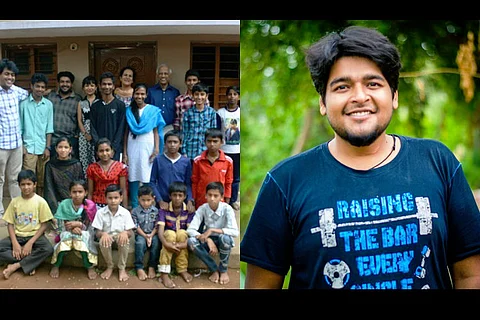

Students across the world will agree that compulsory attendance and examinations are probably the main villains in our education system.
But what if we told you that learning is very much possible without a conventional school setup? Without compulsory attendance, examinations, uniforms or for that matter, teachers?
In a four-room rented house in Banjara Palya, a little over 30 kilometres from Bengaluru, is a school that facilitates students to learn by themselves.
6 months into his job at a software firm in Bengaluru, 25-year-old Abhijit Sinha decided to quit and move to the outskirts of Bengaluru. It was by chance, in his own words, that he later spearheaded Project DEFY (Define Education For Yourself) in March 2014.
More than two years since spearheading a movement that could change the face of the education system in the country, his team has set up two such schools in Karnataka.
“Education is not studying what someone else want you to study, it is about thinking and learning what you want to,” says Abhijit.
At the school, there are no rules or timings.
Around 50 students between the age of 10 and 14 currently use the space to educate themselves in whatever ways they can.
By watching online tutorials, they make articles from trash and other low-cost materials like thermocol. From making robots with toothbrush and wires to making boats out of wood, the students are their own teachers.
Recollecting the early days of the project, Abhijit says that he discovered this method of learning purely by chance.
“I was in the village for some other work. We used to go to a nearby tea stall every day, where I came across these children. When they saw me fiddling with my smartphone, they wanted to do the same. It was pleasantly surprising how the kids, who have never in their lives used a smartphone, figured out how to play games on the phone,” Abhijit recalls.
Over the course of the next few days, he experimented and set up a couple of laptops at the working space, to see if the children would be able to figure out things in a bigger and complicated machine. To his surprise, they did.
“I also experimented with the level of my involvement in their learning. I would leave them to figure out what they wanted to make and how to make it on their own,” he says.
Soon, the number of children increased from 10 to over 50 in just a matter of a few months.
Most of them go to regular schools and rush to the working space a little after noon. But for students like 13-year-old Mukta who is hearing impaired, the doors of the school are open all the time.
Asked whether school is the right way to define the learning setup, Abhijit says that the choice of the word is deliberate.
“School, as we all understand, is a place where everybody is taught the same thing, the ultimate goal being to land a job. That is exactly what we need to change. A school should be a place where independent thinking is encouraged,” he explains.
Abhijit and the rest of the team are elated that Project DEFY will soon be presented at Stanford University at the Fablearn conference.